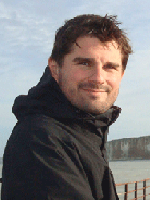The war in Ukraine is fundamentally rewriting the political geography of the European continent. Also before the Russian invasion to Ukraine, Europe has seen a phase of substantial spatial, social and political restructuring. As the political entity with a claim to integrate the European continent, the EU has been playing a pivotal role in such restructuring: its territory has increased through the accession of 13 Eastern and Southern European countries between 2004 and 2013; it has given itself a new constitution in form of the Lisbon Treaty; it is trying to cope with a severe financial crisis and the rise of nationalist and autocratic appeal in and around it; the Coronacrisis is posing unprecedented sanitary, social and economic challenges on all scales; and, for the first time in its history, it has to work through the loss of a member. Simultaneously, the EU’s neighbourhood is also undergoing severe transformations. Not only because the “neighbourhood” changes in form of accession to the EU or secession from it (Brexit), but also in light of geopolitical shifts, such as the war in Ukraine, the effects of the Arab revolutions (including the wars in Syria and Libya) and the power aspirations of Turkey, Russia, Iran and some Arab States.
The socio-spatial shape of the entire macro-region around the EU, often termed the “European neighbourhood”, thus, has been changing substantially – and with it the relations between EU-members and non-members within this macro-region. Also beyond the EU and its neighbourhood, seemingly stable macro-regional orderings of the world are in flux. These transformations of global macro-regional ordering and the changing meanings of “Europe”, the EU and the relations with its “neighbours” are in the centre of this project. Against this background, it explores geographical imaginations of the socio-spatial shape of this macro-region and the spaces of interaction within it, focussing on six key countries in and around the EU (France, Germany, Turkey, Tunisia, Britain and Ireland) and covering three levels of geopolitical analysis (in higher education systems, amongst public figures, and in agenda-shaping media outlets).
More concretely, the IMAGEUN project pursues two key ambitions. Firstly, it develops a comprehensive and dual comparative account of dominant geographical imaginations between six countries and three levels of geopolitical analysis decisive for shaping such imaginations. Secondly, and in addition to the academic output, it not only studies geopolitical agents on these levels but seeks to stimulate collective thought experiments between those geopolitical agents the involved researchers for developing visions on the future socio-spatial shape of the macro-region. As such, collaboration with fellow researchers, think tanks, political stakeholders, journalists and other public figures is an essential and enduring part of the IMAGEUN project. In so doing, it strives for broad public visibility and high political buy-in through the inclusion of these agents in the research process.
see also https://imageun.eu/







